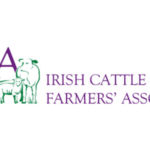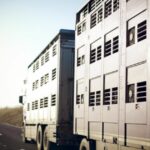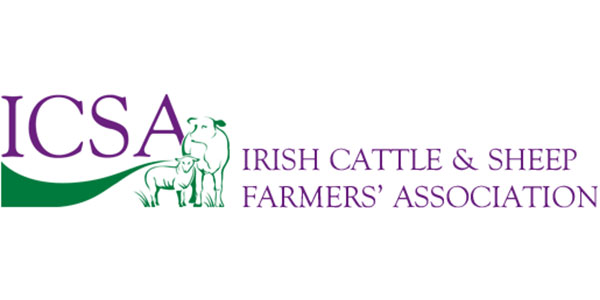Irish Examiner – January 18, 2016
The recent beef forum delivered nothing in the way of positive news for the beleaguered cattle sector. Meat factories have confirmed that weight limits will be back on the table for the New Year while denying, against some evidence, that farmers were being penalised on weights in late 2015.

ICSA, along with other farm organisations, demanded answers on why the price differential with British farmers is at an all-time high.
In recent weeks the differential between what an Irish farmer and his English counterpart gets for an R3 steer has been consistently greater than €1/kg and as high as €1.20/kg.
This equates to at least €350/ head on the average R3 steer.
Meat factories argue that the price gap is simply a reflection of the increased value of sterling vis-à-vis the euro but this is perverse logic.
Strong sterling makes Irish beef exports more competitive.
Whereas £1 sterling was worth €1.37-€1.42 in the second half of 2015, it was only worth an average €1.20 at the start of 2014.
This represents an increase in the purchasing power of sterling of the order of 16%.
Hence, Irish exporters were in a very strong position to deliver better returns to their suppliers in 2015.
However, Irish beef price is up by roughly 8% in 2015, compared to 2014 and in fact, by December was barely ahead of the same time in 2014.
Another way of looking at it is that the last time the exchange rate was comparable was 2005 yet at the time, the differential between Irish and British beef price was 14c/kg.
Someone is creaming it off.
As we face into the 100th anniversary of the Easter Rising, farmers will look wistfully at 2016 and wonder where has it all gone wrong?
Joining the Common Market in 1973 was supposed to herald a golden opportunity for agricultural exports and a reduced dependency on the traditional store trade to Britain that existed throughout a lot of the 20th century up to that point.
Truth be told, the opportunities for exports to EU markets have been hit by general economic weakness and static beef prices across key continental destinations.
Meanwhile, the option of exporting live cattle to Britain has been shut off for years. Governments over many years have favoured beef processing in Ireland over live exports in the belief that adding value here means more jobs.
This argument no longer cuts much ice when you realise that most meat plants are heavily dependent on immigrant workers from Brazil and other states and the work is often based on a three-day week.
However, the real issue for live exports to Britain has been that there are various forces at work conspiring to undermine them.
For many years, animal welfare activists had pressurised the shipping companies into refusing to carry live animals direct from Wexford to Wales.
Following a sustained effort by ICSA, Stena agreed to open up the route in 2014.
Unfortunately the potential has not been realised yet, due to the blocking of live export of stores to Britain by supermarkets.
UK supermarkets refuse to sell beef from cattle born in the Republic and fattened in the UK.
They claim this is due to EU country of origin labelling laws which require this information to be put on the package on supermarket shelves.
Meanwhile, the Larry Goodman-owned ABP Group pay less for cattle supplied by British farmers to their outlets in the UK if the cattle were born in the Republic.
This undermines the principles of the Single European Market and ICSA is actively lobbying to challenge this in Brussels.
Live exports to British farmers who have ready access to massive supplies of grain and by-products at lower cost makes sense.
Only, however, if they get a fair price for such stock.
It is now time for the minister to challenge this at EU level.
It is simply unacceptable that a combination of processors and retailers can thwart the live trade to the UK and thereby allow a growing gap between Irish and British beef price to bed down.
It is not as if the British are doing us a favour buying our beef when they are manifestly very far from self-sufficient.
It is also critical that the Government puts the same diplomatic effort into live exports to international markets, as has been made for beef exports.
Despite all the work opening up China and the US, so far these efforts have yielded nothing for the Irish cattle farmer.
History shows the only hope of a fair playing field for farmers lies in international markets.
We have traditionally sold live exports to North African markets and notwithstanding political turmoil in some of these countries, the demand for cattle is there.
We need to see the Government exploring the opportunities and the challenges of exporting cattle to places like Egypt.
It’s easy to get complacent about €10bn of agri-food exports.
But, if the farmer cannot make a fair return, the long-term future for agri-exports is gone.
© Irish Examiner Ltd. All rights reserved




